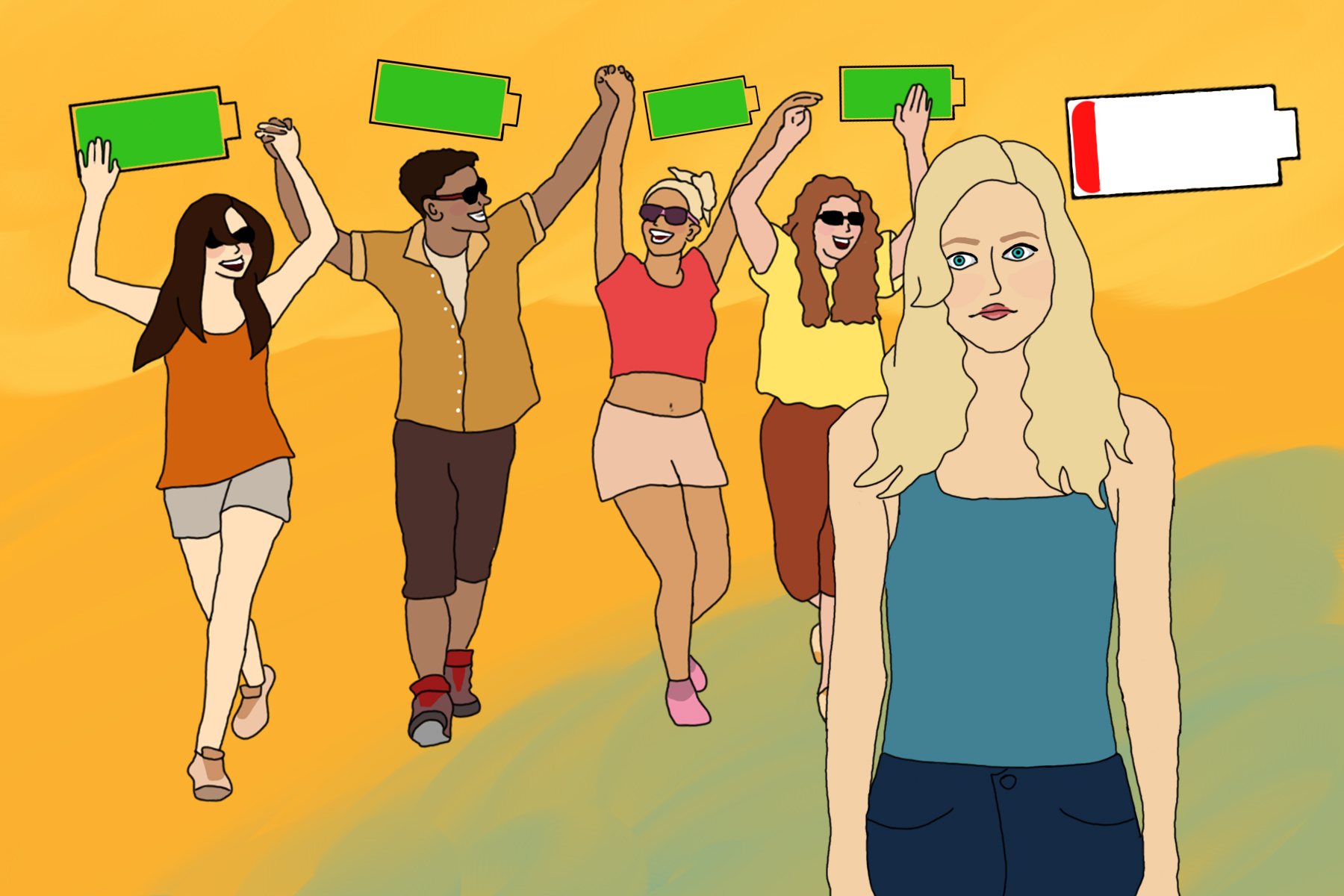Being an introvert doesn’t mean you’re afraid of people. Still, it’s not uncommon for us to find ourselves hiding from the outside world, avoiding confrontation or simply plastered to the sidelines of the things we want nothing more than to be a part of.
Being your own best friend can be the best life. There’s nothing better than getting lost in a world of your own, whether it be in a good book or show, a favorite hobby or simply put, staring into space. For some, life could be that simple if only the weight of the world didn’t lie on the other side of the door.
Maintaining relationships are a hard but necessary part of life that, for introverts, can prove to be particularly difficult. Research shows that having meaningful, lasting relationships isn’t just a sign of good health — it actually makes you live longer. While this doesn’t mean there is a single standard to conform to, the key is finding a sweet spot that helps you be the happiest and healthiest you can be.
This doesn’t always come easily, but the challenges we overcome for the ones we love help us to identify our values, grow into ourselves and become better people. If we’re lucky, they might even serve as particularly helpful channels to embracing the outside world.
You might ask yourself if you count as an introvert, especially if you fit the mold but enjoy being social from time to time. Go with your gut feeling — being an introvert doesn’t mean you’re shy or socially anxious, but introverts do share a preference for being alone and a proclivity toward living internally. This occasionally proves to be problematic but isn’t always.
Psychology and common sense tell us there’s no one way to be an introvert. Like in most things, we all fall somewhere on a spectrum, and there are dozens of names to describe different combinations of personality traits. To keep things simple, it usually boils down to your home base, meaning, if you wish to be labeled, the place you go to unwind. If you sometimes feel anxious in social situations but time with friends helps you to feel yourself again, you could be an extrovert. On the other hand, you might love socializing occasionally but regularly need the alone time to recharge at the end of the day. If this rings true, chances are you’re an introvert at heart.
Everyone has their ideal dose of social engagement. Reaching it could come naturally, but sometimes it takes a little effort or even a step outside of your comfort zone to keep the people you love in your life.
Whether your friends are extroverted, introverted or anything in between, misunderstandings are all too often the name of the game. It can be difficult when an outgoing friend misinterprets your introverted ways, social stamina or general mode of communication as a lack of interest. It also can be easy to fall into the habit of seeing your introvertedness as the problem, routinely blaming yourself for every friendship mishap or beating yourself up for being a “bad friend.” Conversely, you might habitually blame your friends and, in doing so, risk pushing away those who care about you.
While a particularly outgoing friend might be overwhelming or come off as “crazy” or clingy, an extrovert might mistake silence for discontentment, apathy or even hate. Funny enough, both sides of an introvert-extrovert relationship can unwind in similar ways. While your friend is offended that you don’t reach out, when they tire of making the plans, you might wonder why they no longer hit you up — it seems they no longer care. The same can happen in a relationship with another introvert when a lack of solid plans turns into a stalemate, which when unchecked leads to the relationship becoming stale.
It’s easy to get lost in the back and forth when one of you doesn’t return the ball, or worse, when you’re not even sure if the ball is in your court. Sometimes the hardest part of patching things up is figuring out who is at fault when you reach an impasse and who should be the one to adapt.
The answer is usually that it takes effort from both sides and the key lies in communication, something that introverts sometimes, but not always, struggle to achieve successfully. Talking about where you stand with a friend or family member may be the embodiment of dread. Chances are you’ll be glad you did and so will they. Guarantees aside, as long as you and your friend act in the best interest of each other, most of your problems can be solved by maintaining a few habits (and by reading a few quotes).
Prioritize Your Friendship
Friend, family or significant other, you get out what you put in! Let your loved ones know you care or that you’re at least alive, even — especially — if you think they don’t care. Oftentimes they’re waiting for you to reach out, especially if they normally initiate things. If not, it’s always the thought that counts. If you’ve reached a stalemate or a relationship with a loved one feels questionable, always show that you care enough to clear things up.
“How many slams in an old screen door? Depends how loud you shut it. How many slices in a bread? Depends how thin you cut it. How much good inside a day? Depends how good you live ’em. How much love inside a friend? Depends how much you give ’em.”
– Shel Silverstein
Always Ask
Probably the best piece of advice I’ve been given is simple. If you have a question, always ask. It’s tempting to try to let time wash away an awkward moment or unaddressed conflict, but chances are it’s going to resurface some day and potentially be even less palatable than it once was.
Assume the Best
Lean positive and hope for the best. Some things can’t be forgiven but most things can be.
Bounce Back
Bounce back! Be prepared to fail, be disappointed and rejected. Remember that everyone does sometimes.
“I woke up in beast mode”
– Big Sean
“Don’t keep asking yourself why someone hates you, ask yourself why you even care.”
– Nitya Prakash
Don’t Give Up
It’s (almost) never too late to save a relationship. Send that text, even if you’re afraid they’ll be reminded of that time you bailed on plans or showed up late to a commitment. Not only will it open the door to patch things up, it will show that you care. If it doesn’t work out, don’t get discouraged or close yourself off to new opportunities and new relationships — remember the lessons you learned along the way and that each one is practice for the next.
“You can make more friends in two months by becoming interested in other people than you can in two years by trying to get other people interested in you.”
-Dale Carnegie
Labels aside, we all struggle to maintain relationships from time to time. Somehow this is often especially true for the ones that mean the most to us. If you’re tired of struggling, know that it’s normal and that you’re not alone. It’s normal to ask ourselves when to pull away, judge or set boundaries. Next time you run into relationship troubles, don’t overthink, just ask and work from there.
If you’re an introvert like me, you’re probably tired of being treated as though your personality is some sort of behavioral defect or that you’re shy or self-conscious. Maybe we’re happy being introverts — many of us are — but it can come with a cost.
Perhaps labels aren’t always the perfect solution. Maybe we don’t need to call ourselves introverts, just acknowledge both ourselves and others in the relationships we form. We might still need other people and, chances are, they need us. Regardless, it’s still ok to be your own best friend. In fact, it might just be amazing.
















